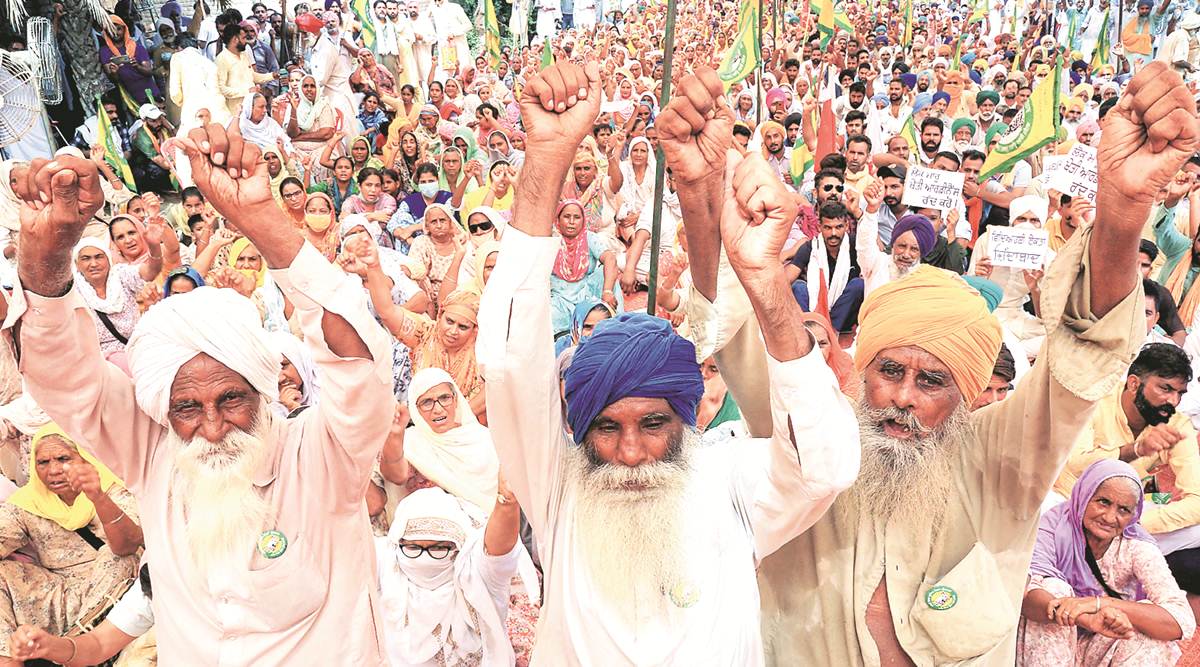 For starters, why not ask the Niti Aayog to write an implementation plan for the farm bills after giving a hearing to various parties. (File photo)
For starters, why not ask the Niti Aayog to write an implementation plan for the farm bills after giving a hearing to various parties. (File photo)To recognise that a lot of agricultural trade takes place outside APMCs is sensible. To think that all that happens under good conditions is silly. To know that arhtiyas are important in Indian agricultural markets is sensible. To know that they are a part of the supply chain in the north-west part of the country is also important. However, arhtiyas cannot dare to take on the FCI and the mai baap sarkar. Moreover, such arrangements do not work in other parts of the country. At the same time, to say that e-markets and farmer-managed companies — the last as designed by a committee I chaired at the beginning of this century — are the way ahead is correct but to suggest that they are dominant rural organisations today, two decades later, is childish.
Agriculture is the one good performing sector this year. We need to strengthen it, not feed off its glory. India has the largest spread of agricultural markets in the world, according to spatial maps. But these markets are not APMCs. Without first-stage processing, in the absence of other infrastructure and with thin markets in commodities other than grains, the farmer knows he is at the mercy of the trader — he takes to the streets when his predicament is not recognised, especially when his traditional exploiters are given the upper hand. No wonder, farmers in Punjab have taken to the streets. Policy can achieve a lot, but some caution in a bad non-agricultural year won’t hurt anyone. In a normal year, one would have suggested that if there are markets in place, the state should leverage them. But this year, the state will have to fight the pandemic and will not have the time to intervene with that selective touch. It will be good to create a few more FMCs, but I do not think they will become the dominant form of rural organisation this year.
That relic of the past, the MSP, had its days of glory when the Marxist economist Ashok Mitra, and then the late Dharam Narain, headed the Agricultural Prices Commission (later CACP). Those were the days of compulsory procurement and zonal restrictions. Each crop had its report. I took charge from them and pointed out that prices play an allocation role, so there should only be two reports, one for kharif and another one for rabi — apart from sugarcane, an annual crop. The 1982 rabi report I wrote talked about the role of relative prices and positioned MSPs as an intervention mechanism when markets failed outside the compulsory procurement area. This was gradually developed by my successors, my teacher GS Bhalla, D S Tyagi, G K Chadha and Abhijit Sen. The concept of transport costs and managerial cost became important and a conceptual report I was commissioned to write was categorised as “classified”. The last time I argued for a “fair” MSP to states like Rajasthan and Gujarat was as an adviser to the then finance minister, the late Jaswant Singh. I was supported by Ram Niwas Mirdha, former Speaker of the Rajasthan Assembly and a champion of dryland agriculture. Sharad Pawar, a kisan at heart, summarised my conceptual report and released it during a discussion in Parliament knowing full well that compulsory procurement MSPs was a ghost concept outside the country’s northwest.
So now when the farmer agitates about MSPs, he says do not be unfair to me.
Is there a way out? For starters, why not ask the Niti Aayog to write an implementation plan for the farm bills after giving a hearing to various parties — the Aayog’s member Ramesh Chand knows about MSPs and APMCs and the agency’s vice-chairman, Rajiv Kumar, understands the trade aspect of agriculture.
Of course, the Essential Commodities Act should be ditched along with the medical waste of the virus. And, next year, we can use these good laws we have always wanted. Good laws are harbingers of progress. Those who disagree should make their case. If they do so without sloganeering, we may actually progress.
The writer, a former Union minister, is an economist
📣 The Indian Express is now on Telegram. Click here to join our channel (@indianexpress) and stay updated with the latest headlines
For all the latest Opinion News, download Indian Express App.